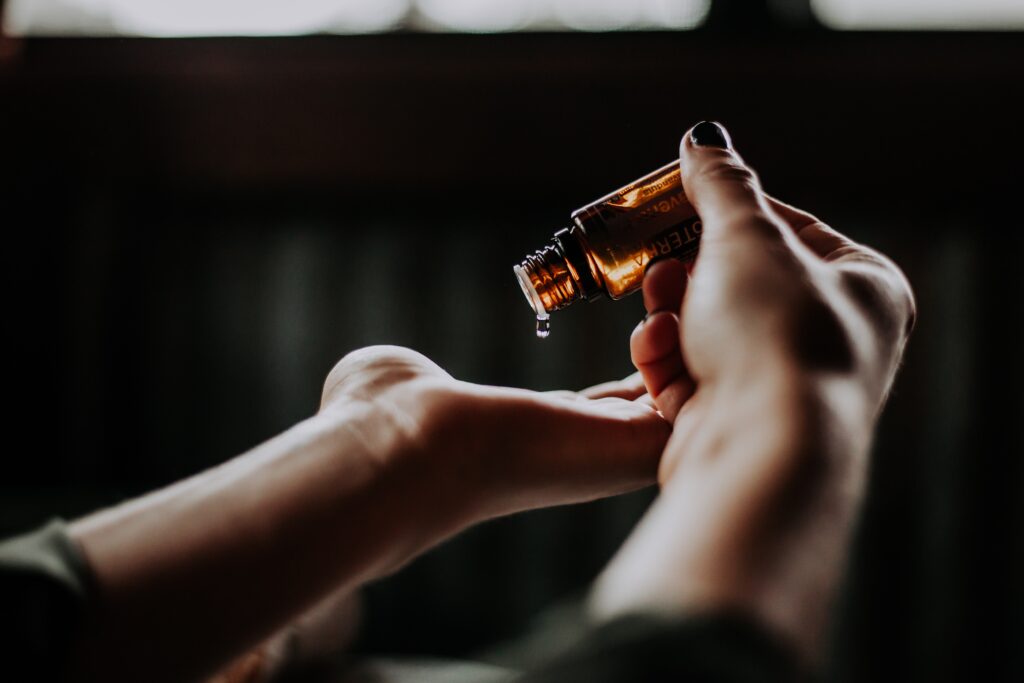Ever wondered about the significance of your first sexual experience? Whether it was as thrilling as anticipated or left you with mixed emotions, this article aims to shed light on the meaning behind this milestone. Exploring the profound impact and potential implications it may have on individuals, we delve into the complexities surrounding this highly personal journey.

Understanding the Concept of First Sexual Experience
Defining First Sexual Experience
The first sexual experience refers to the initial encounter or act of engaging in sexual activity. It is a significant milestone in an individual’s life, marking their entry into the realm of intimate relationships and physical intimacy. While the definition of a first sexual experience may vary from person to person, it generally encompasses activities such as kissing, sexual touching, oral sex, or intercourse.
Society’s Influence on the Perception of First Sexual Experience
Society plays a crucial role in shaping our understanding and perception of first sexual experiences. Cultural norms, religious beliefs, and societal expectations all contribute to the way individuals approach and interpret these encounters. In some societies, a first sexual experience may be seen as a rite of passage, while in others, it may be considered taboo or immoral. Such societal influences can impact an individual’s emotions, self-esteem, and overall experience during this milestone.
The Importance of First Sexual Experience in Personal Development
The first sexual experience holds significant importance in an individual’s personal development. It can influence one’s understanding of their own sexuality, desires, and boundaries. It offers a unique opportunity for self-discovery and learning about one’s body and pleasure. This experience can also shape an individual’s attitudes towards relationships, intimacy, and sexual health. Understanding the various factors that affect one’s first sexual experience can contribute to a healthier and more positive outcome.
Factors Affecting First Sexual Experience
Age and Readiness for First Sexual Experience
Age plays a crucial role in determining an individual’s readiness for their first sexual experience. It is essential to engage in sexual activity when one feels emotionally, mentally, and physically prepared. Age can vary depending on the individual, as readiness for such experiences may differ. It is important to consider factors such as emotional maturity, knowledge about sexual health, and consent when determining one’s readiness for a first sexual experience.
Consent and Communication
Consent and communication are fundamental aspects of any sexual experience, including the first one. It is essential to obtain explicit and enthusiastic consent from all parties involved before engaging in sexual activity. Consent should also be ongoing and can be withdrawn at any time. Open and honest communication about boundaries, desires, and expectations is crucial in ensuring a positive and respectful first sexual experience.
Relationship Status and Emotional Connection
The nature of the relationship or connection between individuals can significantly impact their first sexual experience. Being in a committed, loving, and trusting relationship often fosters a more positive and meaningful sexual encounter. Emotional connection and mutual respect contribute to a sense of safety and comfort, allowing individuals to explore their desires and boundaries freely. However, not all first sexual experiences occur within romantic relationships, and the context may vary depending on individual preferences and circumstances.
Cultural and Religious Beliefs
Cultural and religious beliefs can strongly influence an individual’s first sexual experience. These beliefs may shape attitudes towards premarital sex, contraception, and sexual norms. For some, adherence to cultural or religious values may result in feelings of guilt or shame associated with their first sexual encounter. Conversely, others may find empowerment and fulfillment in aligning their sexual experiences with their cultural or religious beliefs. It is important to navigate these influences with self-awareness, open-mindedness, and respect for personal convictions.
Sex Education and Knowledge
The level of sex education and knowledge an individual possesses can significantly impact their first sexual experience. Comprehensive sex education that covers topics such as consent, contraception, sexually transmitted infections (STIs), and communication is crucial in fostering informed and responsible choices. Lack of accurate information may lead to misunderstandings, misconceptions, and potential risks during the first sexual encounter. It is crucial to prioritize access to reliable and inclusive sex education to promote healthy sexual experiences.
Different Perspectives on First Sexual Experience
Positive Experiences and Empowerment
For many individuals, the first sexual experience can be a positive and empowering event. It can be a source of pleasure, intimacy, and personal growth. Positive first sexual experiences often involve open communication, mutual respect, and an understanding of boundaries. These experiences can foster a sense of self-confidence, exploration, and a deeper connection with oneself and others.
Negative Experiences and Trauma
Unfortunately, some individuals may have negative or traumatic first sexual experiences. These experiences can arise from lack of consent, coercion, or violation of boundaries. Negative first sexual encounters can have long-lasting psychological and emotional impacts, leading to feelings of guilt, shame, and even trauma. It is crucial to acknowledge and address the prevalence of negative experiences to create an environment that values consent, respect, and emotional well-being.
Varied Emotional Responses to the First Sexual Experience
The emotions experienced during a first sexual encounter can vary greatly among individuals. Some may feel excitement, curiosity, and joy, while others may experience anxiety, nervousness, or fear. It is important to recognize and validate these diverse emotional responses. Each individual’s unique emotional experience should be respected and supported, allowing for open communication and a safe space for processing and understanding these emotions.
Navigating Consent and Boundaries During First Sexual Experience
The Meaning of Consent
Consent is a crucial aspect of any sexual experience, including the first one. It is an ongoing process that involves obtaining clear, voluntary, and enthusiastic agreement from all parties involved. Consent cannot be assumed or coerced. It is important to prioritize open, honest, and respectful communication to ensure that all individuals involved feel comfortable and safe during the sexual encounter.
Understanding Boundaries and Communication
Establishing and respecting boundaries is vital in creating a safe and consensual first sexual experience. Each individual has their unique comfort levels and limits, and it is essential to communicate those boundaries openly and honestly. Active listening and mutual understanding are necessary to ensure that everyone involved feels heard and validated. Encouraging continuous communication throughout the sexual encounter allows for the adjustment of boundaries and ensures a positive and respectful experience.
Recognizing and Respecting Personal Limits
During the first sexual experience, it is crucial to recognize and respect personal limits. Individuals have the right to set their boundaries and determine what they are comfortable with. Respecting these limits is essential in creating an environment that promotes trust, safety, and mutual understanding. Pressure or coercion to exceed one’s personal limits should never be tolerated, as it undermines the principles of consent and can lead to negative emotional and psychological outcomes.
The Role of Trust and Mutual Understanding
Trust and mutual understanding play a significant role in navigating consent and boundaries during the first sexual experience. Establishing trust fosters an environment where individuals feel comfortable and safe expressing their desires, concerns, and boundaries. Mutual understanding allows for empathy and respect, creating a foundation for positive communication and sexual exploration. Building trust and cultivating a strong connection based on open communication can enhance the overall experience and emotional well-being of all those involved.

The Influence of Media and Society on First Sexual Experiences
Media’s Portrayal of First Sexual Experience
The media often plays a significant role in shaping our perception of first sexual experiences. Movies, television shows, and pornography can create unrealistic expectations and ideals surrounding sexual encounters. Often, these portrayals depict sex as solely pleasurable, flawless, and devoid of any challenges or complications. Such unrealistic representations can lead to feelings of inadequacy, pressure to conform, and disappointment when reality does not align with these media-driven fantasies.
Societal Expectations and Peer Pressure
Societal expectations and peer pressure can exert a significant influence on individuals’ first sexual experiences. Society’s emphasis on the importance of sexual experiences and the notion that early sexual activity is desirable can place undue pressure on individuals, especially young adults. Peer pressure can amplify these societal expectations, leading individuals to engage in sexual encounters before they are emotionally ready or fully informed. It is crucial to challenge these societal expectations and prioritize individual well-being and personal choices.
Addressing Unrealistic Expectations and Stereotypes
Addressing and challenging unrealistic expectations and stereotypes surrounding first sexual experiences is essential. Open and honest conversations about the realities of sexual encounters can help dispel myths and provide a more holistic understanding of the diverse nature of these experiences. Promoting realistic and inclusive representations through media, education, and public discourse can help individuals navigate their own sexual journeys while cultivating informed and responsible decision-making.
Gender Roles and First Sexual Experience
Different Expectations for Males and Females
Gender roles often influence the expectations, experiences, and consequences associated with first sexual encounters for both males and females. Society tends to impose different expectations and standards on individuals based on their gender. Males may face pressure to exhibit dominance and experience sexual conquest, while females may be expected to be passive or submissive. These roles can impact self-esteem, body image, and overall experience, reinforcing societal norms and stereotypes.
Breaking Gender Stereotypes and Norms
Challenging and breaking gender stereotypes is crucial to promoting healthy and equal first sexual experiences for all individuals. Encouraging individuals to express their desires and preferences free from gender expectations can empower them to navigate their sexual encounters authentically. It is important to cultivate an environment that values consent, communication, and mutual respect, allowing individuals to explore their sexual identity and exert agency over their own experiences, free from societal constraints.
Impact on Self-Esteem and Body Image
Gender roles and societal expectations surrounding first sexual experiences can have a significant impact on an individual’s self-esteem and body image. The pressure to conform to societal beauty standards or perform according to gendered expectations can lead to feelings of inadequacy, shame, or anxiety. It is important to foster body positivity, self-acceptance, and a healthy understanding of one’s own beauty and worth. Nurturing a positive self-image can contribute to a more fulfilling and empowering first sexual experience.

Emotional and Psychological Aspect of First Sexual Experience
Feelings of Excitement and Anxiety
First sexual experiences can evoke a range of emotions, including excitement and anticipation, as well as anxiety or nervousness. It is normal to experience a mix of these emotions, considering the significance and novelty of the encounter. It is essential to acknowledge and validate these feelings, as they can vary greatly among individuals. Engaging in open communication and maintaining a supportive environment can help alleviate anxiety and enhance the overall emotional well-being during this milestone.
Exploring Sexual Identity and Orientation
The first sexual experience can be a pivotal moment of self-discovery and exploration of one’s sexual identity and orientation. It may be an opportunity to validate and affirm one’s attractions, desires, and preferences. This exploration can lead to a greater understanding of one’s sexuality, fostering self-acceptance and empowerment. It is important to approach this phase with an open mind, respect for personal journeys, and the belief that everyone’s sexual identity and orientation are valid and worthy of celebration.
Psychological Impact of First Sexual Experience
The psychological impact of the first sexual experience can vary greatly among individuals. Positive experiences can enhance self-esteem, body image, and overall emotional well-being. However, negative or traumatic experiences can have lasting psychological effects, leading to feelings of guilt, shame, or even post-traumatic stress disorder (PTSD). It is crucial to provide support, empathy, and resources for individuals who may be dealing with such emotional challenges. Seeking professional help, such as therapy or counseling, can be beneficial for those experiencing psychological distress.
Dealing with Post-First Sexual Experience Emotions
After the first sexual experience, individuals may experience a wide range of emotions, including happiness, relief, confusion, or even a sense of loss. It is important to remember that these emotions are normal and valid. Taking time for self-reflection, engaging in open communication with trusted individuals, and seeking support from loved ones can help navigate and process these emotions. Everyone’s emotional journey following their first sexual experience is unique, and it is essential to prioritize self-care and emotional well-being during this time.
Sexual Health and Safety during First Sexual Experience
Contraception and Protection Against Sexually Transmitted Infections
Prioritizing sexual health and safety is critical during the first sexual experience. Consistent and correct use of contraception, such as condoms or other forms of birth control, helps prevent unintended pregnancies and reduce the risk of sexually transmitted infections (STIs). It is essential for individuals to have access to comprehensive and accurate information about contraception methods and the importance of regular STI testing. Taking responsibility for one’s sexual health is a fundamental aspect of a positive and safe first sexual experience.
The Role of Safe Sex Practices
Safe sex practices encompass more than just contraception and STI prevention. It also includes open communication, consent, and mutual respect. Safe sex practices involve understanding and addressing issues such as sexual boundaries, emotional well-being, and the importance of regular sexual health check-ups. Engaging in safe sex practices contributes to a healthier and more positive first sexual experience, while also promoting responsible sexual behavior in the long run.
Seeking Professional Guidance and Information
Seeking professional guidance and information about sexual health and safety is essential for individuals embarking on their first sexual experience. Healthcare providers, such as doctors, nurses, or sexual health counselors, can offer valuable insights, answer questions, and provide essential resources. Professional guidance ensures that individuals receive accurate and up-to-date information about contraception, STIs, consent, and emotional well-being, empowering them to make informed decisions and prioritize their sexual health.

The Role of Consent Education in First Sexual Experiences
Improving Consent Education in Schools and Communities
Consent education plays a vital role in promoting healthy and consensual first sexual experiences. It is essential to incorporate comprehensive and age-appropriate consent education into school curricula and community programs. By teaching individuals about the importance of consent, boundaries, and communication from an early age, society can build a foundation that values respect, empathy, and autonomy. Consistent and ongoing consent education empowers individuals to navigate their sexual experiences with confidence, while also fostering a culture of consent and mutual respect.
Promoting Healthy Boundaries and Communication Skills
Promoting healthy boundaries and communication skills is crucial in ensuring positive first sexual experiences. Consistent education and open conversations about boundaries, consent, and communication within relationships can empower individuals to express their needs, desires, and limits. Educating individuals about effective communication strategies and active listening mechanics can enhance understanding and empathy, creating an environment of mutual respect and emotional safety during sexual encounters.
Addressing Peer Pressure and Coercion
Addressing peer pressure and coercion is essential in creating a supportive and safe environment for first sexual experiences. Educating individuals about the dangers of peer pressure, manipulation, and coercion helps them recognize and navigate potentially harmful situations. Encouraging individuals to trust their instincts and promoting self-advocacy can empower them to assert their boundaries and make informed decisions. By fostering a culture that condemns peer pressure and coercion, society can contribute to healthier, consensual, and enjoyable first sexual experiences for all individuals.
Conclusion
The concept of the first sexual experience is a complex and multifaceted topic that encompasses various factors and perspectives. Understanding the definition, societal influences, and importance of the first sexual experience allows individuals to navigate this milestone with knowledge, respect, and communication.
Factors such as age, consent, relationship status, cultural beliefs, and sex education significantly affect the first sexual experience. Recognizing the diversity of emotions and perspectives surrounding this milestone is crucial in fostering a positive and empowering environment for all individuals involved.
Navigating consent, boundaries, and communication during the first sexual experience is essential to building trust, respecting personal limits, and establishing a foundation of mutual understanding. Challenging societal expectations, breaking gender stereotypes, and promoting body positivity contribute to a healthier and more inclusive first sexual experience.
Understanding the emotional and psychological aspects, as well as prioritizing sexual health and safety, are integral to a positive and fulfilling first sexual encounter. Incorporating consent education in schools and communities, promoting healthy boundaries and communication skills, and addressing peer pressure and coercion help create an environment that values respect, empathy, and informed decision-making.
Ultimately, by fostering a culture that embraces open dialogue, consent, and respect, society can contribute to a more positive, empowering, and satisfying first sexual experience for all individuals.


